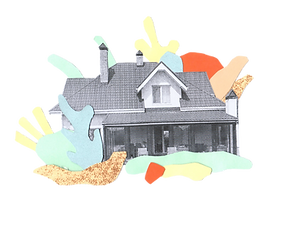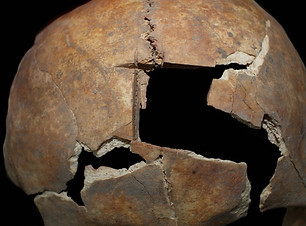
Research Streams

Archaeological Notions of Kinship
This research is the focus of my dissertation. I ask, how did people buried beneath a multigenerational house for hundreds of years relate to one other?
In collaboration with laboratories at Harvard and the Max Planck Institute, I incorporate aDNA and isotopic datasets to evaluate the biological components of kinship.
This was the topic of my dissertation, which I am currently preparing for publication.

Stress, Disease, and Care in Antiquity
The general goal of this research is to situate paleopathological and traumatic lesions within an individual's broader sociopolitical context. This includes reconstructing avenues of care.
Publications:
Kalisher et al. 2024- "Dental wear in a marine economy: A case study from Philistine Ashkelon." International Journal of Osteoarchaeology 34(1): 1-14.
Kalisher et al. 2023- "Cranial trephination and infectious disease in the Eastern Mediterranean: The evidence from two elite brothers from Late Bronze Megiddo, Israel." PLoS One 18(2): e0281020

Reproduction & Maternity
Collaborative multi-study project led by Paola Cerrito, where we explore how bone microstructurally records various life history events, with an emphasis on reproduction.
My interests lie in developing these models for archaeological human remains to understand how childbirth and breastfeeding were experienced in the past.
Publications:
Cerrito et al. 2023. "Life history in primate teeth is revealed by changes in major and minor element concentrations measured via field-emission SEM-EDS analysis." Biology Letters 19 (1): 20220438
Cerrito et al. 2022. Elemental composition of primary lamellar bone differs between parous and nulliparous rhesus macaque females. PLoS One 17 (11): e0276866.
Cerrito et al. 2021. "Weaning, parturitions and illnesses are recorded in rhesus macaque (Macaca mulatta) dental cementum microstructure. "American Journal of Primatology 83(3): e23235